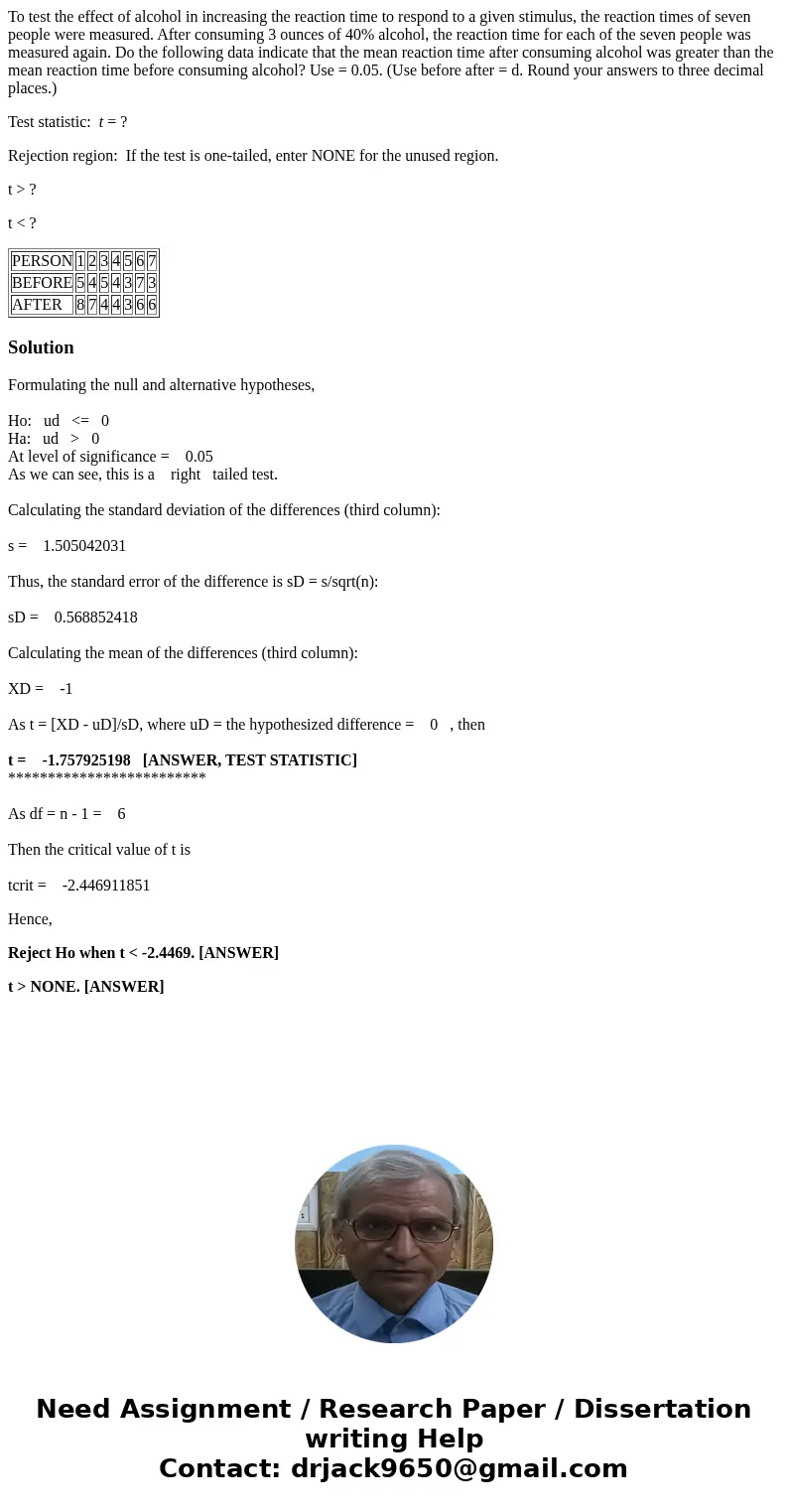To test the effect of alcohol in increasing the reaction tim
To test the effect of alcohol in increasing the reaction time to respond to a given stimulus, the reaction times of seven people were measured. After consuming 3 ounces of 40% alcohol, the reaction time for each of the seven people was measured again. Do the following data indicate that the mean reaction time after consuming alcohol was greater than the mean reaction time before consuming alcohol? Use = 0.05. (Use before after = d. Round your answers to three decimal places.)
Test statistic: t = ?
Rejection region: If the test is one-tailed, enter NONE for the unused region.
t > ?
t < ?
| PERSON | 1 | 2 | 3 | 4 | 5 | 6 | 7 |
| BEFORE | 5 | 4 | 5 | 4 | 3 | 7 | 3 |
| AFTER | 8 | 7 | 4 | 4 | 3 | 6 | 6 |
Solution
Formulating the null and alternative hypotheses,
Ho: ud <= 0
Ha: ud > 0
At level of significance = 0.05
As we can see, this is a right tailed test.
Calculating the standard deviation of the differences (third column):
s = 1.505042031
Thus, the standard error of the difference is sD = s/sqrt(n):
sD = 0.568852418
Calculating the mean of the differences (third column):
XD = -1
As t = [XD - uD]/sD, where uD = the hypothesized difference = 0 , then
t = -1.757925198 [ANSWER, TEST STATISTIC]
*************************
As df = n - 1 = 6
Then the critical value of t is
tcrit = -2.446911851
Hence,
Reject Ho when t < -2.4469. [ANSWER]
t > NONE. [ANSWER]

 Homework Sourse
Homework Sourse